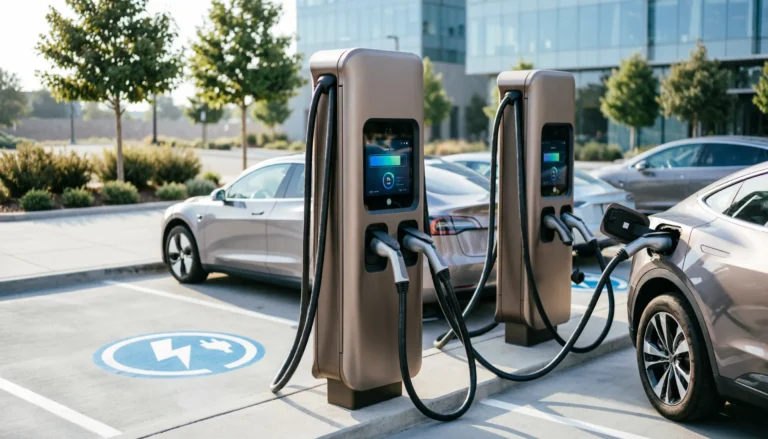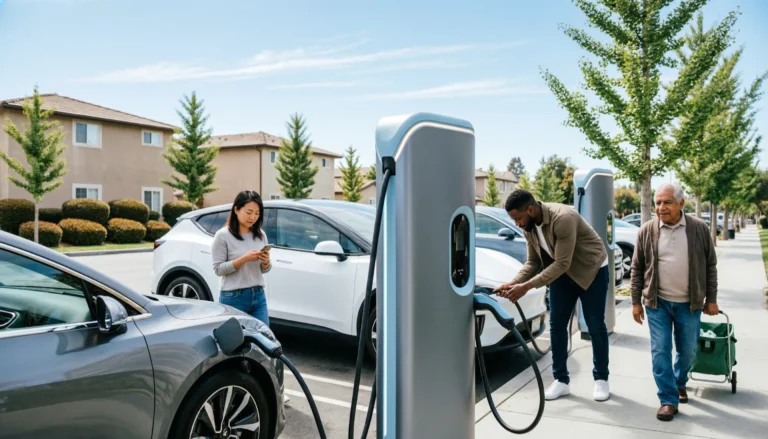
EV Charging Industry Faces Critical Scalability and Grid Challenges, New Driivz Report Finds
Driivz, a subsidiary of Vontier and a global leader in electric vehicle (EV) charging and energy management software, has published a newly commissioned market report that sheds light on the key challenges and priorities facing EV charging service providers in 2025. The report, based on a comprehensive survey conducted earlier this year, offers a data-driven view of the electric mobility landscape and what lies ahead as the sector continues its rapid evolution.
With EV adoption accelerating worldwide, the report provides essential insights into how charging network operators—from independent providers and utilities to automotive manufacturers and fuel retailers—are responding to increasing demand, navigating scalability challenges, and planning to improve the charging experience for drivers.
Understanding the Roadblocks to EV Charging Network Growth
The Driivz survey targeted 300 full-time professionals working within the EV charging ecosystem, specifically senior-level decision-makers at Charge Point Operators (CPOs) and Electric Vehicle Service Providers (EVSPs) across North America and Europe. Participants were selected for their hands-on roles in managing charging infrastructure and customer-facing operations, giving the report a credible, industry-grounded perspective.
One of the most significant takeaways from the survey is that energy capacity constraints have emerged as the number-one challenge for charging network operators in 2025. These limitations—rooted in grid infrastructure, site-level power availability, and utility coordination—are seen as a major bottleneck to growth and scalability.
More than 80% of respondents reported that their networks are only minimally or moderately scalable in their current form. This finding underscores the growing urgency for solutions that can optimize energy consumption, manage load dynamically, and reduce the need for costly infrastructure upgrades.
According to Andrew Bennett, CEO of Driivz, the stakes are high: “EV charging operators understand that the number and location of chargers—and their reliability—are key to more widespread EV adoption by the general public. Amidst surging demand, it’s vital that the EV charging industry identifies and solves for the challenges that constrict scalability and profitability. The resounding sentiment from these industry leaders is that energy consumption management and optimization will be major forces for scalability and profitability in 2025 and beyond.”
Investment Priorities for 2025: Enhancing Operations and Driver Experience
As EV charging operators face mounting pressure to expand their networks while maintaining reliability, the survey also explored how they are prioritizing investments to meet these challenges head-on.
The top three areas of focus for 2025 include:
- Optimizing operations to enhance the user charging experience (33%): This priority reflects the industry’s recognition that a seamless, reliable charging experience is essential for driver satisfaction and long-term business success.
- Ensuring network stability and uptime 24/7 (27%): Operators are investing in technologies and processes to prevent downtime and maintain consistent service levels.
- Expanding infrastructure by adding more charging sites (29%) and deploying fast chargers (25%): With growing EV adoption, expanding charging footprints—particularly high-speed charging options—is a key growth lever.
In addition to scalability and reliability, charger compatibility remains a persistent hurdle. The variety of EV makes and models, coupled with differing charging standards and communication protocols, continues to complicate charging sessions. This challenge not only frustrates drivers but also increases operational complexity for network operators.
Smart Solutions for an Evolving Landscape
To help CPOs and EVSPs overcome these barriers, Driivz is focused on delivering advanced EV charging and energy management solutions that directly address the industry’s most pressing concerns.
Tackling Energy Capacity Constraints
Traditional charging infrastructure often requires significant capital investment to expand grid connections or increase site-level capacity. However, Driivz’s smart energy management platform enables operators to support up to six times more EVs without requiring electrical infrastructure upgrades. By dynamically allocating energy based on real-time demand, time-of-use pricing, and vehicle charging profiles, operators can unlock substantial efficiencies.
This approach not only defers expensive grid enhancements but also facilitates the deployment of more charging points in space-constrained or energy-limited environments—such as urban centers, retail parking lots, and highway corridors.
Operational Optimization for Better Service
The Driivz platform also enables high levels of operational automation. According to the company, up to 80% of charger issues can be resolved remotely and automatically, reducing the need for on-site maintenance visits and minimizing downtime. This capability translates to lower operational costs and improved uptime, both of which are critical in delivering a consistent charging experience to drivers.
By proactively identifying and resolving issues—ranging from firmware bugs to connectivity disruptions—smart platforms empower CPOs to take a predictive, rather than reactive, approach to network management.
Addressing Compatibility and Interoperability Challenges
Another cornerstone of Driivz’s strategy is improving charger compatibility and ensuring interoperability across different hardware manufacturers and EV models. Many of the compliance issues that impact charging sessions stem from mismatched or incomplete implementation of industry communication standards such as OCPP (Open Charge Point Protocol) and OCPI (Open Charge Point Interface).
To resolve this, Driivz’s platform offers customizable back-end support that bridges gaps in hardware-software integration, ensuring smoother interactions between vehicles, chargers, and the broader network. This flexibility allows network operators to onboard a diverse mix of charging stations without compromising the user experience.
Building a Scalable, Profitable EV Charging Future
The findings of the Driivz survey underscore a broader truth: while EV adoption continues to gain momentum, the charging infrastructure needed to support it must evolve just as quickly. The gap between demand and capacity—both in terms of energy and operational readiness—poses a real risk to growth unless industry players take decisive action.
By deploying intelligent software solutions that enhance scalability, streamline operations, and support compatibility, CPOs and EVSPs can build charging networks that are not only more resilient and profitable but also more aligned with the needs of the modern EV driver.
As Bennett emphasized, “Well-managed charging networks lead to higher driver satisfaction, which produces long-term business growth.” The path forward will require collaboration, innovation, and a shared commitment to delivering accessible, reliable, and future-ready EV charging infrastructure.







